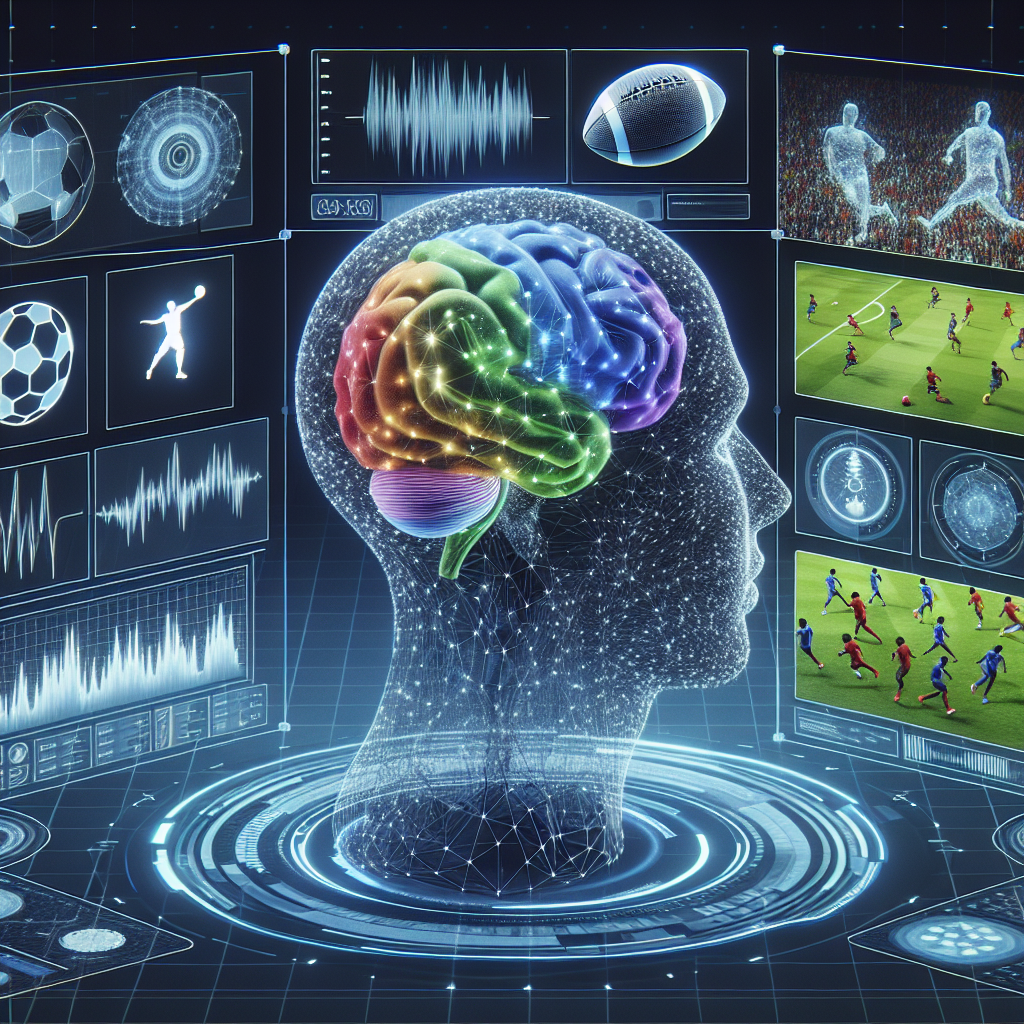Generative AI in Sports: Enhancing Performance Analysis
Artificial intelligence (AI) has revolutionized many industries, and sports is no exception. Generative AI, a subset of AI that focuses on generating new content, has the potential to enhance performance analysis in sports in remarkable ways. By using generative AI algorithms to analyze vast amounts of data, sports teams and athletes can gain valuable insights into their performance, improve their strategies, and ultimately achieve better results.
Generative AI works by training algorithms on large datasets to generate new content, such as images, text, or even music. In the context of sports, generative AI can be used to analyze video footage of games, track player movements, and identify patterns that may not be easily recognizable to the human eye. By processing this data, generative AI can provide coaches and athletes with detailed insights into their performance, helping them make more informed decisions and improve their overall game.
One of the key advantages of generative AI in sports is its ability to analyze and interpret complex data in real-time. For example, generative AI algorithms can track players’ movements on the field, analyze their positioning, and identify patterns that may be affecting their performance. This real-time analysis can help coaches make quick adjustments to their strategies during games, giving their team a competitive edge.
Generative AI can also be used to predict outcomes and simulate scenarios based on historical data. By analyzing past games and player performances, generative AI algorithms can generate predictions about future games, helping coaches and athletes better prepare for upcoming matches. Additionally, generative AI can be used to simulate different scenarios, such as player injuries or changes in strategy, allowing teams to test different strategies and develop contingency plans.
Another application of generative AI in sports is in the design and development of training programs. By analyzing data on player performance and fitness levels, generative AI algorithms can generate personalized training programs tailored to each athlete’s strengths and weaknesses. This personalized approach to training can help athletes improve their skills more effectively and optimize their performance on the field.
In addition to performance analysis, generative AI can also be used to enhance the fan experience. By analyzing data on fan preferences and behavior, generative AI algorithms can generate personalized content, such as highlight reels or virtual reality experiences, that cater to individual fans’ interests. This personalized content can help teams engage with their fans more effectively and build a stronger fan base.
Overall, generative AI has the potential to revolutionize performance analysis in sports by providing coaches and athletes with valuable insights, predicting outcomes, and enhancing the fan experience. As generative AI technology continues to advance, we can expect to see even more innovative applications in the world of sports.
FAQs:
Q: How is generative AI different from other forms of AI?
A: Generative AI is a subset of AI that focuses on generating new content, such as images, text, or music. Unlike other forms of AI, which are designed to perform specific tasks, generative AI algorithms are trained on large datasets to generate new content based on patterns and relationships in the data.
Q: How can generative AI help sports teams and athletes improve their performance?
A: Generative AI can analyze vast amounts of data, such as video footage of games and player movements, to provide coaches and athletes with valuable insights into their performance. By analyzing this data, generative AI can help teams identify patterns, make informed decisions, and improve their strategies to achieve better results.
Q: What are some potential applications of generative AI in sports?
A: Generative AI can be used to track player movements, analyze game footage, predict outcomes, simulate scenarios, and design personalized training programs. Additionally, generative AI can enhance the fan experience by generating personalized content that caters to individual fan preferences.
Q: What are the challenges of implementing generative AI in sports?
A: One of the main challenges of implementing generative AI in sports is the complexity of the data involved. Sports data can be vast and complex, requiring sophisticated algorithms and computing power to analyze effectively. Additionally, there may be concerns about data privacy and security when using generative AI to analyze sensitive player data.
Q: How can sports teams and athletes leverage generative AI to gain a competitive edge?
A: By harnessing the power of generative AI to analyze data, predict outcomes, and simulate scenarios, sports teams and athletes can gain valuable insights into their performance and make more informed decisions. This can help them optimize their strategies, improve their skills, and ultimately achieve better results on the field.

